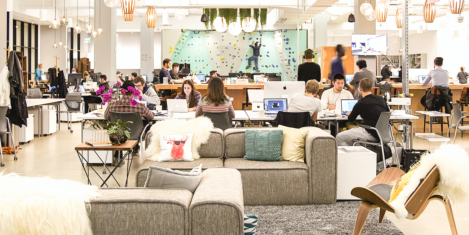To provide the best experiences, we use technologies like cookies to store and/or access device information. Consenting to these technologies will allow us to process data such as browsing behaviour or unique IDs on this site. Not consenting or withdrawing consent, may adversely affect certain features and functions.
The technical storage or access is strictly necessary for the legitimate purpose of enabling the use of a specific service explicitly requested by the subscriber or user, or for the sole purpose of carrying out the transmission of a communication over an electronic communications network.
The technical storage or access is necessary for the legitimate purpose of storing preferences that are not requested by the subscriber or user.
The technical storage or access that is used exclusively for statistical purposes.
The technical storage or access that is used exclusively for anonymous statistical purposes. Without a subpoena, voluntary compliance on the part of your Internet Service Provider, or additional records from a third party, information stored or retrieved for this purpose alone cannot usually be used to identify you.
The technical storage or access is required to create user profiles to send advertising, or to track the user on a website or across several websites for similar marketing purposes.
 Enthusiasm among international investors for the UK commercial property market has continued to wane over the past quarter, according to BrickVest’s latest commercial property investment barometer. According to the data ,capturing the views of over 6000 international professional real estate investors, only 27 percent view the UK as their preferred market, a 4 percent fall in the past 12 months. More →
Enthusiasm among international investors for the UK commercial property market has continued to wane over the past quarter, according to BrickVest’s latest commercial property investment barometer. According to the data ,capturing the views of over 6000 international professional real estate investors, only 27 percent view the UK as their preferred market, a 4 percent fall in the past 12 months. More →







 Firms in the FTSE 100 are on track to reach the target of 33 percent of women on boards by 2020 that was set by the
Firms in the FTSE 100 are on track to reach the target of 33 percent of women on boards by 2020 that was set by the 












 Over recent years, we have witnessed significant changes when it comes to the workplace. Women are continuing to push through the glass ceiling, offices are starting to look more likes homes and businesses are opting for a more flexible and sociable working environment. This rise in coworking and other forms of flexible office space is just one of the latest trends to emerge from the corporate world, and according to a report by office brokers
Over recent years, we have witnessed significant changes when it comes to the workplace. Women are continuing to push through the glass ceiling, offices are starting to look more likes homes and businesses are opting for a more flexible and sociable working environment. This rise in coworking and other forms of flexible office space is just one of the latest trends to emerge from the corporate world, and according to a report by office brokers 
















June 11, 2019
What is workplace technology really for, anyway?
by Pete Trainor • Comment, Technology